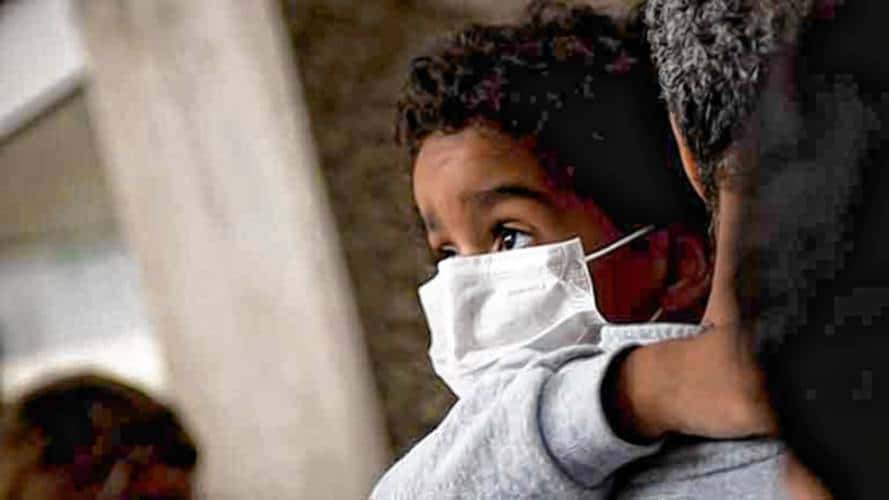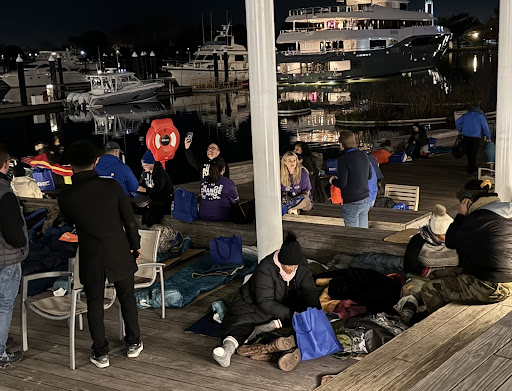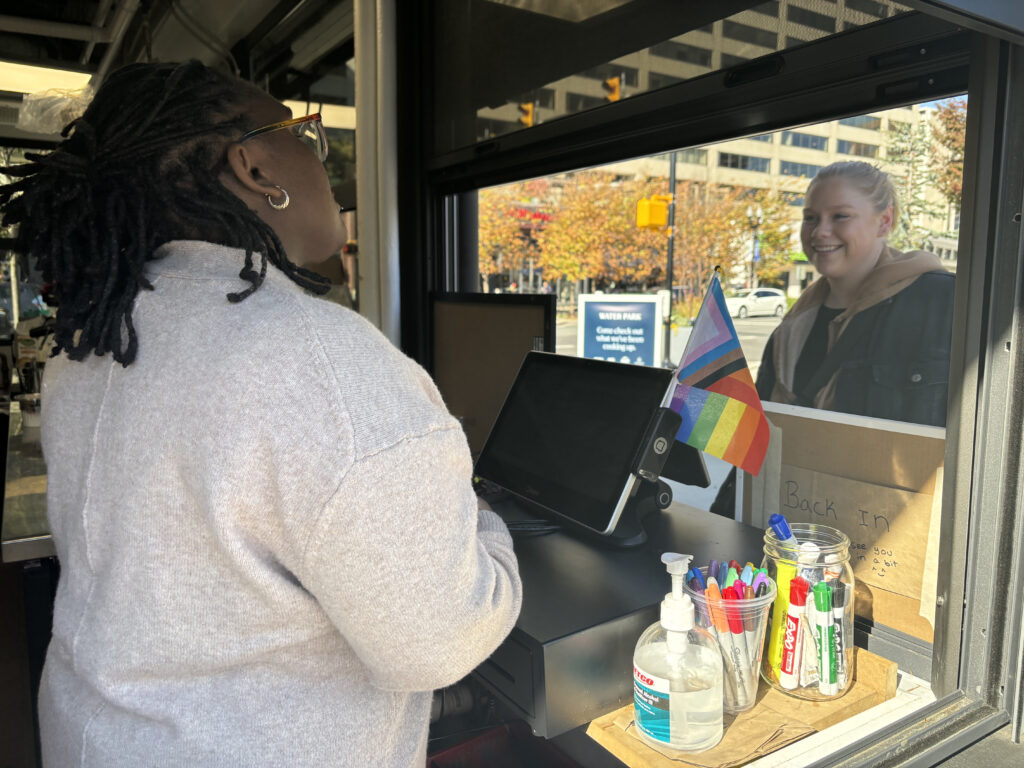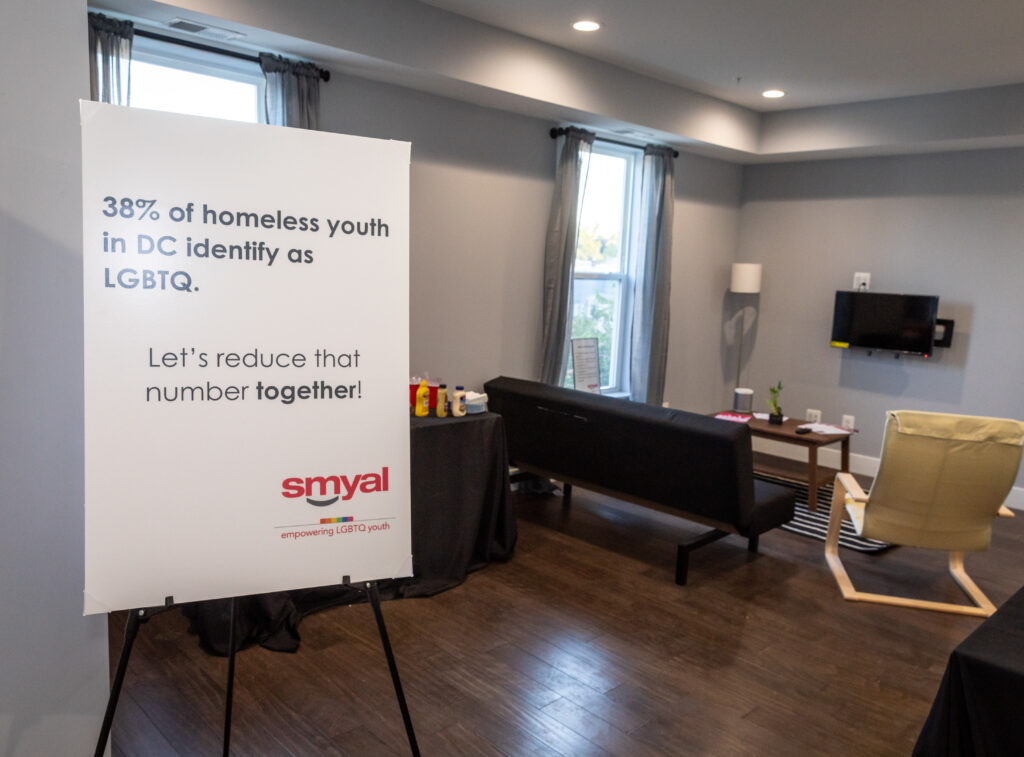During the COVID-19 pandemic, impoverished and homeless children are in disproportionate need of wellness support. Without access to in-person learning, child development can be stunted, leaving students of color, homeless students, and those with learning disabilities more at risk of adverse effects of online learning than others.
In D.C., where 47% of students are identified as “at risk” — including homeless children, those in the foster care system, and students who qualify for Temporary Assistance for Needy Families or Supplemental Nutrition Assistance Program — the problem is especially acute. For many in that demographic, schools provide wellness support and socialization opportunities that they may not have access to otherwise.
D.C. nonprofit leaders have been trying to fill in the gap to provide educational and child developmental resources to those in need, in some cases expanding on work they’d been doing since before the pandemic. However, their ability to keep children engaged in order to maintain their wellness has been limited by the virtual space and coronavirus restrictions.
For Brittany Washington, the transition to remote schools was a challenge for her and her 3 year old girl.
“Take potty training for her. When she was at school, all the kids would go to the bathroom,” Washington said. “But when she was at home, it was like she didn’t have anybody to, you know, do those things with her.”
While Washington doesn’t believe her child is experiencing any mental health illnesses, she insinuated that the lack of teacher and peer expectations that come from a school environment delayed her daughter’s development.
“It was kind of hard because school had just shut down,” Washington said. “And with this being my first child, it’s the developmental stage for her. We were home 24/7 together. She [does] better when she’s around other kids as far as learning.”
A few weeks ago, Washington was given the choice to keep her child enrolled in grade school online or send her to in-person daycare. She chose daycare to ensure the proper socialization and growth development for her child.
[Read more: With a return to limited in-person learning, some DC families see hope while others remain wary]
“One of the things that virtual learning has made very difficult is if you are a child who is experiencing homelessness and you are popping out of schools,” said Marla Dean, director of D.C. nonprofit Bright Beginnings. “If you’re coming to a new school, your ability to develop relationships with your peers and your teachers in a virtual space is very difficult. One of the crucial things you must do with children that are marginalized, vulnerable, and experiencing homelessness is to make sure you develop strong relationships with them.”
Bright Beginnings provides children and families experiencing homelessness with counseling, a home-visiting program, and development centers for minors. According to Dean, a large number of families connected to the organization are survivors of intimate partner violence, which can have dire effects on learning capabilities and development, further compounding the impacts of virtual learning.
“If your brain is traumatized, then you cannot learn,” Dean said. “You can’t be in fight and flight and be able to learn at the same time. So it evidences itself in developmental delays — it evidences itself in […] cognitive developmental delay, physical developmental delay, socioemotional developmental delays.”
These are problems that the pandemic has exacerbated. “What we saw over time was deterioration, mental health deterioration, and increased home domestic violence,” Dean said. “Those types of things we knew were going on in the home, so we really beefed up and did a lot of support groups around mental health.”
Virtual learning has also deprived many D.C. children of everyday social interaction, which is key for childhood speech and language development. With D.C. schools mainly operating online, child advocates are concerned about delayed progress being seen in some children.
“We’re seeing a lot of speech delays,” Dean said. “Children are [dependent] on seeing people’s mouths to develop language, and with everyone having on a mask, that’s also impacting the development of language. And then you add that with trauma, adverse childhood experiences, and we’re definitely seeing speech delay in our children.”
Schools are not only places for students to learn, but also providers of valuable resources for all students and especially homeless children. Schools offer nutritious food, a safe environment, and support from teachers and staff that students lack under pandemic conditions. Without schools, impoverished children are left with minimal resources for learning, nutrition, and safety in their home environments.
Sameya, a 16-year-old student at Eastern High School, spoke to Street Sense Media about aid provided to students by Black Swan Academy. The nonprofit is committed to providing D.C. youth with the tools to improve their lives.
During the height of the pandemic, Black Swan Academy offered grocery deliveries for those in need, like Sameya. “Especially when my grandma had gotten COVID. I really needed groceries because I couldn’t go. I was the only one taking care of her at the time,” she said.
“In Ward 7 and Ward 8, two of our wards in the District of Columbia that needed child development services the most, there were limited child development services,” said Sandra Jackson, CEO of House of Ruth, an organization that provides housing, financial, and trauma support for survivors of intimate partner violence. “So what does that mean? That means that parents who were trying to work, or needed to work, or were working, were leaving their children in very unsafe environments. They had no choice.”
Before the pandemic, House of Ruth fundraised $7 million to renovate a childcare center in Ward 7. In September of 2020, the organization opened the brand new building to serve families that needed it the most during the pandemic. This center provides therapeutic counseling and childcare for families in need within one of the most impoverished areas in the District.
The scarcity of resources for children and families in wards 7 and 8, areas composed of mostly Black D.C. residents, illustrates the economic disparities that research suggests the pandemic has exacerbated.
Child Trends, a research organization focused on vulnerable children, published an article suggesting that the pandemic has intensified the lack of access to early intervention and affordable treatment services for poor children and children of color. For instance, from July 2020 to December 2020, Black D.C. adults’ access to medical care decreased while non-Hispanic white residents’ access increased. A parent’s circumstances can have great consequences for their children because children are dependent on the adults in their lives for adequate care and resources.
“These are not well-to-do families,” Jackson said. “These are families that are east of the river, that they themselves have experienced disparities across the board.” These families have to leave their communities and travel far distances to access resources for themselves and their children.
Washington is a client of House of Ruth and said that she is doing better than most seeing as she is employed and can provide for her child. She has benefited from the organization’s services throughout the pandemic.
“In the beginning, they were doing diaper drives — where you can pick up diapers and stuff like that. Just this past weekend, they had another grocery pickup. So they do those periodically, when they do have the resources, they do a program that will come to the school and give a full trunk of groceries.”
Families like Washington’s are forced to get creative in order to ensure their children develop at a normal rate under abnormal circumstances, and nonprofit organizations are under pressure to provide opportunities and access for children’s wellness.
“I know people who are in different situations, and thankfully, we’re not,” Washington said. “I feel like the support we’ve had from the schools and the community […] we’ve been utilizing those.”








